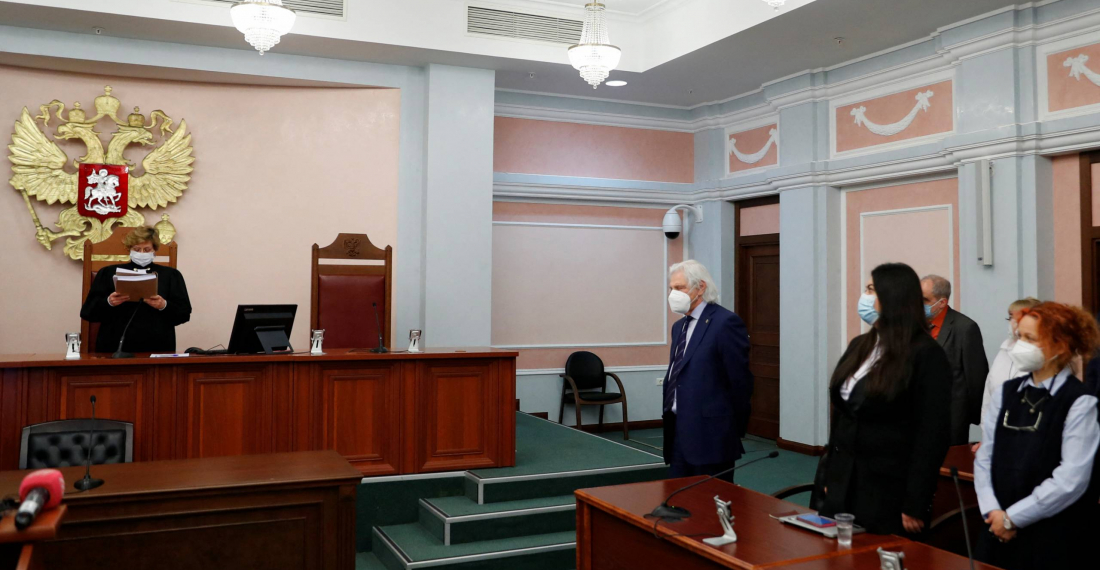The Russian human rights organisation Memorial International must be closed down. Russia's Supreme Court has ruled this on Tuesday (28 December). Memorial is the oldest and most respected human rights organisation in Russia. According to various press agencies, dozens of supporters of the organisation gathered outside the court, despite a ban on demonstrations being issued.
The Supreme Court found Memorial guilty of a "serious violation of the law on foreign agents". Another critical point for the judges was the extensive documentation of state repression from the Soviet era. Therefore, the court condemned Memorial for "creating a false image of the Soviet Union as a terrorist state". By disbanding the organisation, the Russian authorities hope to undo the memory from that era.
Its branches in Moscow and Saint Petersburg had previously been placed on a "foreign agents" list. The organisation considers the prosecution a "politically motivated decision". Another accusation made by the judges is supporting "extremism and terrorism", as the organisation keeps a list of political prisoners.
A lawyer for Memorial says that the organisation does not resign itself to the verdict. The human rights organisation wants to appeal in Russia itself and at the European Court of Human Rights.
At the end of the 1980s, a group of Soviet dissidents, including the physicist and Nobel Prize winner Andrei Sakharov (1921-1989), founded the organisation. Memorial has long been under criticism from Russian authorities for its voluminous documentation of the brutalities in Russian history, and building a database of victims of the Great Terror and gulag camps.






